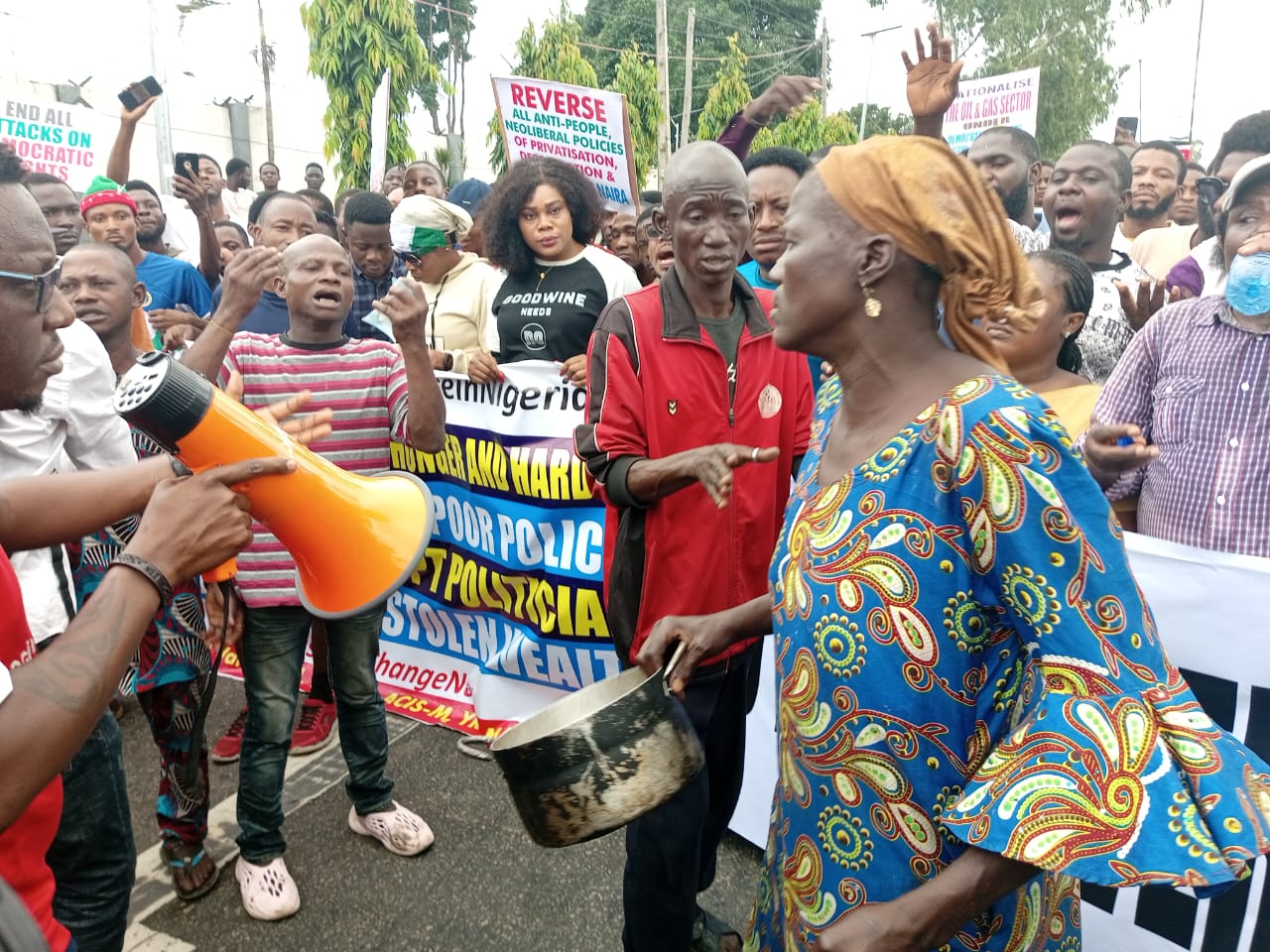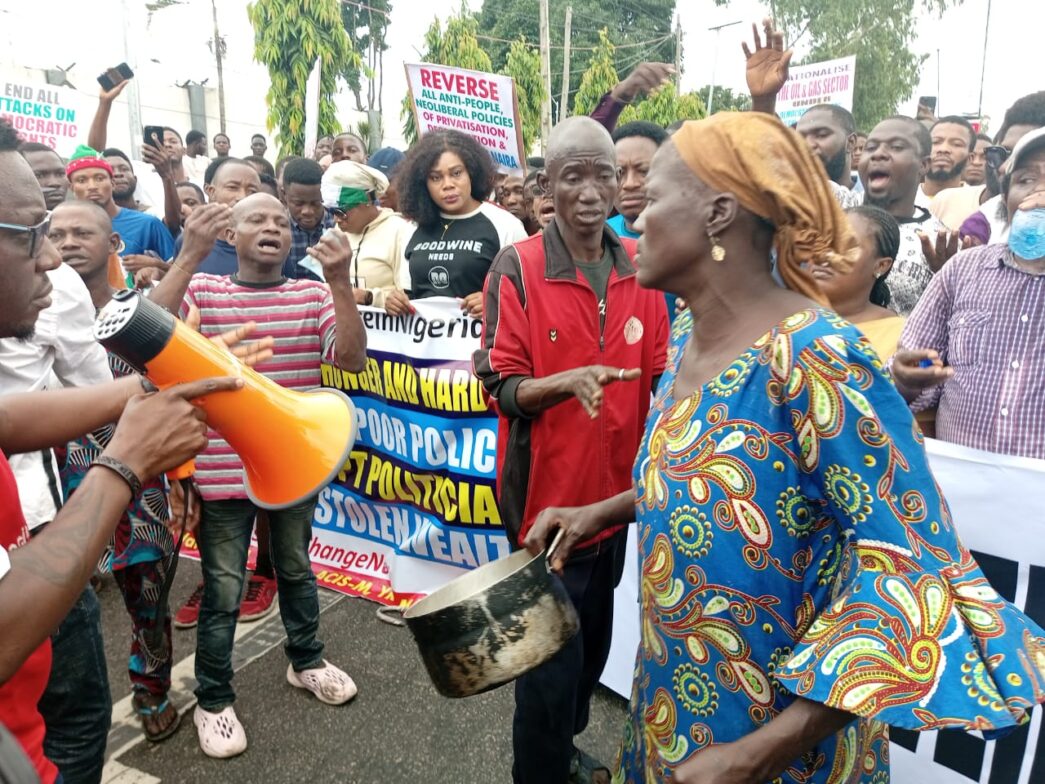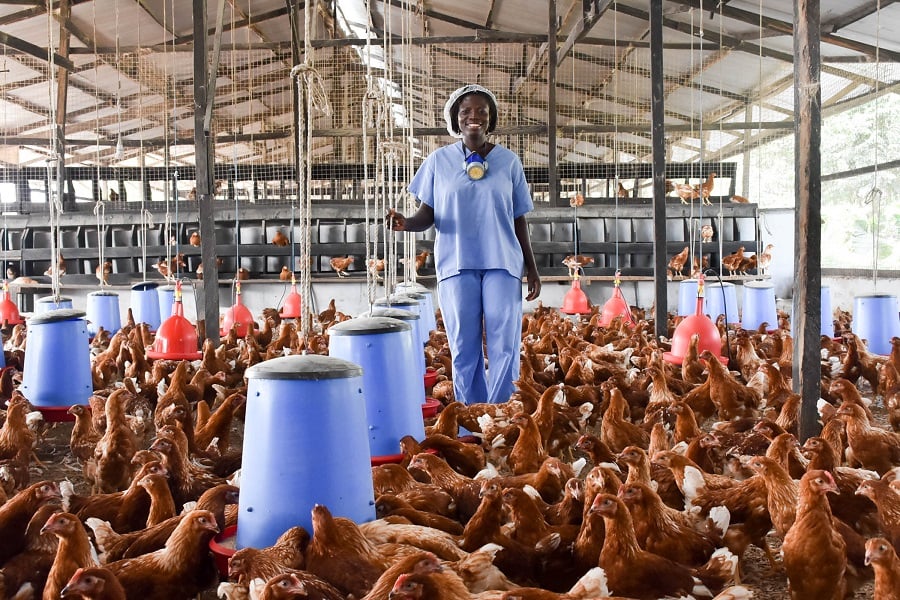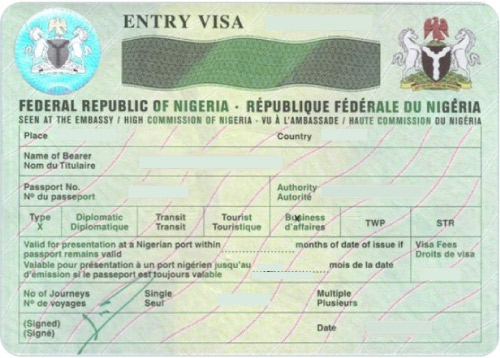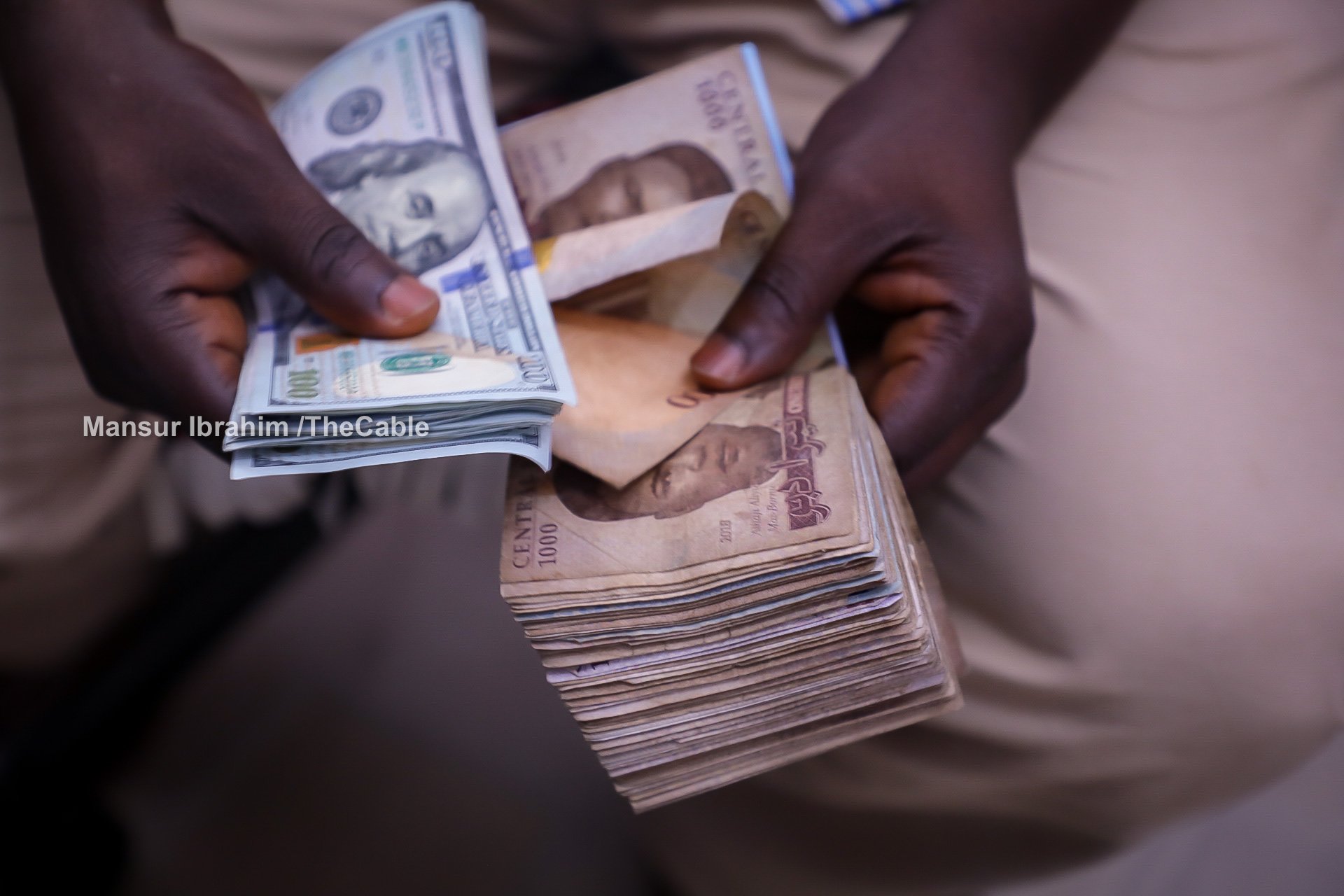#EndBadGovernance protest in 2024
The year 2024 was like no other, a year that again tested our strength, stretched our patience and forced us to reckon with the harsh realities of life in Nigeria. For many of us, it felt like we were living in a whirlwind, constantly being pulled between moments of hope and despair. We faced power struggles, economic turbulence, political unrest, and a myriad of challenges that left us questioning if things would ever get better. But through it all, here we are still standing, still surviving, and still holding on to the belief that one day, Nigeria will rise to meet its potential. This year wasn’t just another chapter in our history; it was another evidence to our resilience. To those of us who survived 2024, this is our story.
Bad governance protests
The #EndBadGovernance protests erupted across the nation, fueled by rising living costs, insecurity, and the removal of the fuel subsidy. Nigerians took to the streets, demanding change and accountability from a government that seemed to be losing touch with the struggles of ordinary Nigerians. While the government’s response was forceful, the protests highlighted just how deep our frustration runs and how much we need our leaders to step up and address the issues that affect us every day.
Minimum wage struggles
Advertisement
The promise of a new minimum wage of N70,000 for public servants felt like a glimmer of hope for many of us struggling to make ends meet in the face of skyrocketing inflation. But the slow rollout of this wage increase left many in limbo, unable to escape the financial strain. While a few states have adopted the new wage, others remain silent, leaving their workers in the same dire conditions. For many, the delay in implementing the new wage became yet another struggle—a survival tactic to make ends meet in a country where basic needs seemed to be slipping further out of reach.
National grid
For many of us, 2024 was marked by constant power outages, as the national grid collapsed 12 times throughout the year. The darkness became a symbol of our daily struggles, hours without electricity, unable to carry out basic tasks. The reasons were familiar, ageing infrastructure, gas supply issues, and sabotage—but the reality was clear: our power sector was in crisis. Yet, even in the dark, we adapted, relying on generators and candles, as we always do.
Advertisement
Wike vs Fubara
The political drama in Rivers State was one of the year’s most gripping sagas. As we followed the bitter rivalry between Nyesom Wike, the Minister of the FCT, and Governor Siminalayi Fubara, it felt like we were watching a clash of titans. Wike’s supporters, numbering 27 pro-Wike lawmakers, defected from the PDP to the APC, sending shockwaves across the state. This wasn’t just a political squabble; it was a battle for control, one that led to President Bola Tinubu’s intervention. However, his peace deal couldn’t hold. The political war in Rivers continued, with both Wike and Fubara entangled in a legal battle that only deepened the divide. It’s clear that this crisis won’t resolve itself anytime soon, and it will likely echo into the new year, leaving us with more questions than answers.
Kano’s Emirate crisis
In Kano, the Emirate crisis raged on, and we watched as the fight for the throne played out like a dramatic script. It all started back in 2020 when Sanusi Lamido Sanusi was removed as Emir, but the battle didn’t end there. Fast forward to 2024, and Governor Abba Yusuf reinstalled Sanusi while creating new emirates, Rano, Gaya, and Karaye. But the real struggle was between Emir Aminu Ado Bayero and those loyal to Sanusi, with the latter refusing to vacate despite the court’s orders. We were left questioning the role of federal government interference and the influence of security agencies. The crisis continues to divide the people of Kano and may remain unresolved for the foreseeable future.
Advertisement
Dangote, Port Harcourt And Warri Refinery
Amid the chaos, the Dangote Petroleum Refinery stood as a beacon of hope. We watched as this massive $20 billion facility began production in January 2024, processing 650,000 barrels of crude oil per day. Finally, Nigeria’s dependence on imported petroleum products began to ease. For many of us, this refinery wasn’t just a business achievement; it was a sign that we could build something substantial, something that could change the course of our nation’s future.
The revival of the Port Harcourt Refinery and the Warri Refining & Petrochemicals Company (WRPC) marks a significant turning point for Nigeria’s oil sector. After years of disrepair and mismanagement, the Port Harcourt Refinery came back online in 2024, with new facilities capable of refining 150,000 barrels per day, offering the potential to ease longstanding energy challenges. Similarly, the WRPC now operates at 60 percent capacity, a commendable achievement by the Nigerian National Petroleum Company (NNPC) Limited in restoring the 125,000 barrels per day plant.
These developments, alongside Dangote’s refinery, signal a critical moment where Nigeria could finally take control of its energy resources, reducing reliance on imports and fostering self-sufficiency in the oil sector.
Advertisement
Governors and the EFCC
2024 also brought a significant legal turning point in the battle against corruption. The Supreme Court ruled that the EFCC, ICPC, and NFIU had the right to investigate and prosecute state and local government officials. This was a win for those of us who have long been frustrated by the pervasive culture of impunity in our country. Governors had long fought to shield themselves from the EFCC’s probes, but the court’s ruling made it clear: no one is above the law. While this decision is a step in the right direction, we all know that the fight against corruption is far from over, and its full impact will unfold in the years to come.
Advertisement
Bank recapitalisation: A battle for survival
In the financial sector, 2024’s policy of bank recapitalisation was another challenge to our survival. Commercial and merchant banks were forced to raise their capital base, shaking up the entire banking industry. While some of our largest banks, like Guaranty Trust Holding Company and Zenith Bank, successfully met the new requirements, many small and mid-sized banks struggled to survive. For millions of Nigerians, this policy meant potential layoffs and even bank closures, leaving families and businesses scrambling to find alternatives. It wasn’t just a financial restructuring; it was a test of endurance for many who relied on these banks to secure their livelihoods.
Advertisement
The controversial tax reform bills: More burdens, less relief
As if things weren’t already complicated enough, in October 2024, the Nigeria Tax Bill was introduced. This new set of tax reforms promised to overhaul our tax system, but it was met with scepticism and strong opposition. The national assembly became a battleground, with senators divided over the proposed changes. For many of us, the debate felt all too familiar, another instance where our leaders disagreed over what would best serve the people. The outcome of this debate will undoubtedly shape Nigeria’s economic future, but for now, it feels like yet another burden to bear.
Advertisement
Nigeria’s dry Olympic: A disappointment amidst the struggle
Despite a substantial N12 billion budget allocated to Team Nigeria, their performance fell far short of expectations, leaving Nigerians baffled and deeply disappointed at the Paris Olympics. Between July 26 and August 11, Nigeria competed alongside over 200 nations in the 2024 Paris Olympic Games. However, this year’s event proved disheartening as the country’s 88 athletes returned home empty-handed, failing to secure a single medal.
Avoidable deaths from stampedes: A tragedy born from desperation
Finally, 2024 brought a heartbreaking tragedy. Across the country, we saw stampedes as people scrambled for palliative distributions—pushed to the brink by hunger and desperation. In Sokoto, Lagos, Nasarawa, and Anambra, we witnessed people lose their lives in chaotic scenes that could have been avoided. The most devastating incident occurred in Ibadan, where 35 children tragically died during a stampede at a children’s funfair. These deaths, born out of poverty and inequality, were a stark reminder of the struggles we face every day.
Budget of restoration?
Among the events that defined 2024 was President Bola Tinubu’s introduction of the 2025 federal budget. On the heels of a turbulent year, this monumental N47.9 trillion financial plan was presented as the “Budget of Restoration: Securing Peace and Rebuilding Prosperity.” In his address to the National Assembly, Tinubu highlighted that the budget was a collective effort—a roadmap for reshaping Nigeria’s future, an effort to secure peace and rebuild prosperity. This ambitious budget places a heavy emphasis on defence, infrastructure, healthcare, and education—sectors vital to stabilising the nation and providing a foundation for long-term growth.
As we stand on the threshold of a new year, it remains to be seen how much of this ambitious plan will materialise and whether Nigeria will finally begin to experience the growth and stability that it so desperately needs. But for those of us who survived 2024, one thing is certain: we are resilient. We have faced the worst and emerged still standing, still hopeful, and still fighting for a better tomorrow.
Ogungbile Emmanuel Oludotun can be contacted via [email protected]
Views expressed by contributors are strictly personal and not of TheCable.
Add a comment
